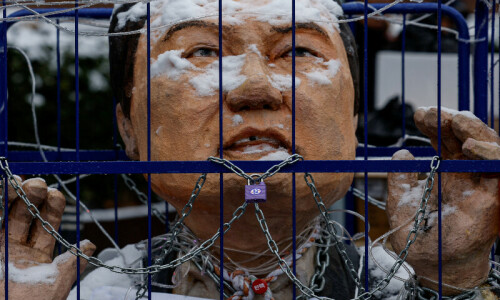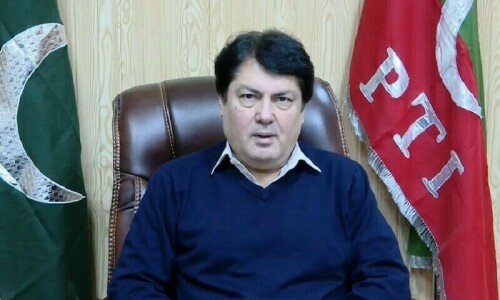KARACHI: The Sindh High Court on Wednesday directed the counsel for complainant in Perween Rahman murder case to file an affidavit with regard to an application seeking to take on record additional evidence.
Complainant Aquila Ismail, a sister of Ms Rahman, through her lawyer filed an application in the SHC asking it to take on record a TV interview of appellant Rahim Swati as additional evidence in the proceedings of the appeals filed by the convicts.
Ms Rahman, the renowned social worker and former head of the Orangi Pilot Project, was gunned down near her office on Manghopir Road on March 13, 2013.
In December 2021, an antiterrorism court had sentenced Rahim Swati, Amjad Hussain Khan, Ayaz Ali alias Swati and Ahmed Khan alias Pappu Kashmiri to life imprisonment on charges of facilitating, aiding and abetting the outlawed Tehreek-i-Taliban Pakistan for her murder.
Thereafter, all the convicts filed appeals against conviction before the SHC.
When a two-judge bench headed by Justice Mohammad Karim Khan Agha took up the appeals for hearing on Wednesday, it was informed that the complainant’s lawyer filed an application along with a USB that contained additional evidence.
The appellants’ lawyers sought time to go through the USB and contents of the application and subsequently the bench adjourned the matter till Thursday (today).
However, the bench in its order said: “Learned counsel for complainant shall also file his affidavit as to when he received the said additional evidence which he seeks to take in the appeal.”
The lawyer for the complainant asked the SHC to take the video recording of interview on record by itself or issue a directive to the trial court in this regard.
The counsel argued that the complainant was working on a book on the life of Ms Rahman and while researching, one of her colleagues came across the interview of Rahim Swati recorded by a private news channel.
The lawyer submitted that the appellant was seen to have confessed the murder of Ms Rahman in the interview and such evidence had come into the knowledge of the complainant after the ATC judgement.
He further submitted that there was no bar for recording additional evidence at the appellate stage as there were only two requirements, firstly the same be necessary for the just decision of the case and secondly such evidence was not available at the time of the trial or the party concerned was prevented from producing the same by circumstances beyond its control or by reasons of misunderstanding or a mistake.
Published in Dawn, November 3rd, 2022













































